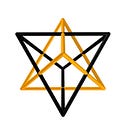Member-only story
Operators: Harbingers of the Zeitgeist
I’m talking about mathematical operators here, knowing the title may spark thoughts of co-conspirators, as in many language games and “operator” is a somewhat mysterious fixer, engaged in “special operations” which may be bad.
We also have surgeons who “operate” in “operating rooms”.
As for Zeitgeist, I know that term is overused, or let’s just say overdetermined, as to its meaning. “Harbingers” sound a bit like “valkyries” in riding toward us over the horizon, bearers of war news. Omens.
Let’s remember that “operator” comes from “opus” which comes from “work”. An author writes a “magnum opus” (major work). An operator, then, is a worker (one who operates).
The workers bees of arithmetic are its operators. Numbers just lie around, inert (“numb ers”) until taken up in operations, initially the Major Four: addition and multiplication, subtraction and division.
We know we’re doing maths when these operators show up and start asserting their various powers over a number field. They’re like tractors, combines, that pull numbers from the dirt, singly (unary) or in pairs (binary), to create yet more numbers. They’re our number crunchers, these operators.
In the early years, these operator symbols are instructions to us, the computers, the people who do…
